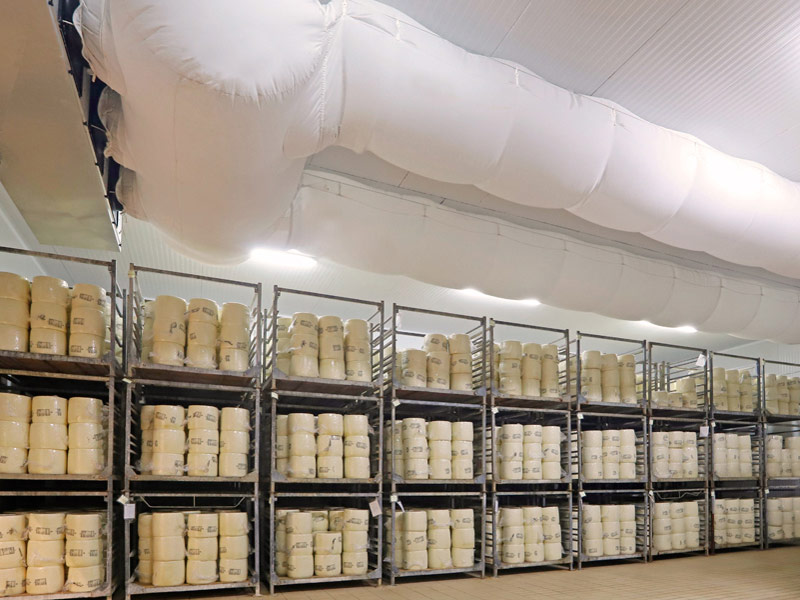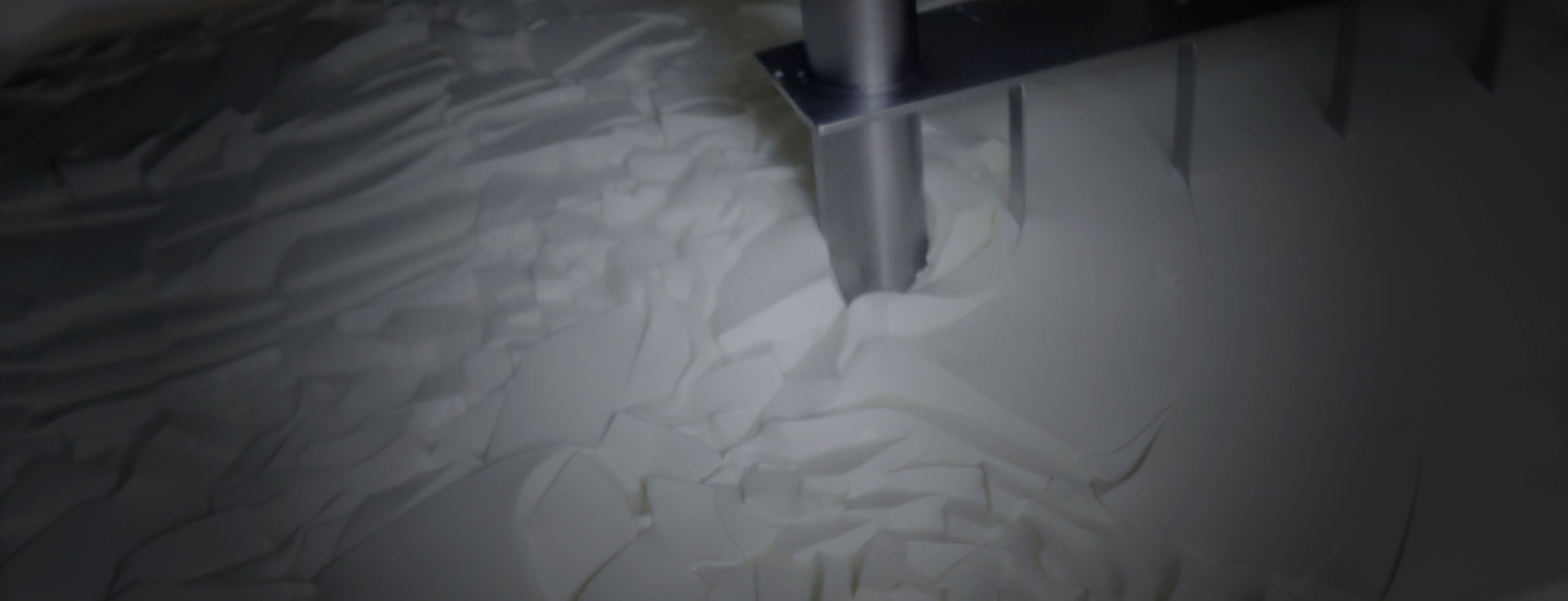
Spinneret
The mountains where the sheep graze are exposed to winds such as the Mistral, Grecale, and Tramontana, which carry sea-born aromas that enrich the pastures. The 30,000 sheep are raised in the wild, living freely in the open air—under the sun by day and beneath the starry sky at night. Their diet is primarily based on natural pastures, where wild aromatic herbs grow without artificial intervention.

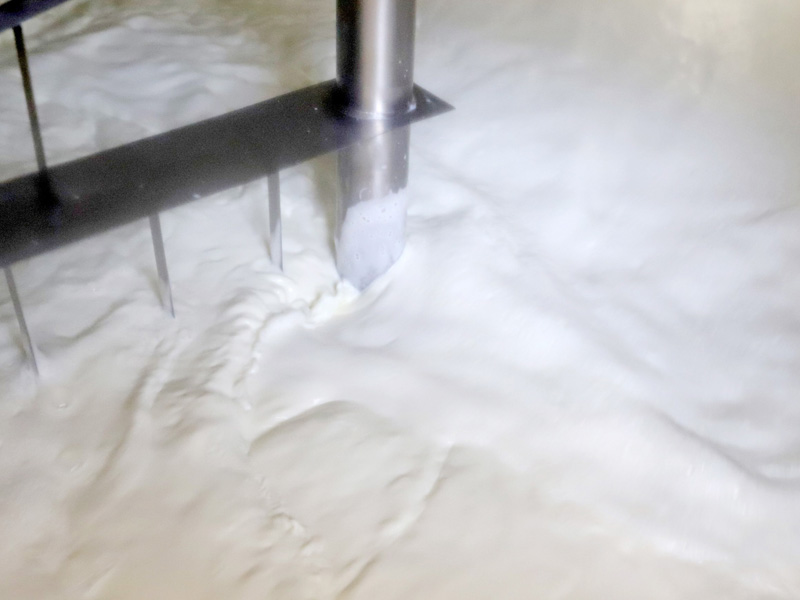
Every morning, before dawn, the farmers begin milking the sheep. The milk is then heat-treated to ensure the high quality of the cheese produced.
After milking, the milk is transferred to the dairy where it undergoes thermalization. Then, natural lactic cultures and rennet are added to thicken the milk within 20-30 minutes. The resulting "curd" is cut and placed into molds, then moved to a "warm room" for half a day, where the molds are turned several times to facilitate the drainage of excess whey. At the same time, the remaining whey is heated to 82 degrees to produce ricotta, which rises to the surface and is then placed into molds, ready for sale as fresh cheese. The production process of pecorino is completed with salting, where salt is manually applied to each wheel and carefully rinsed afterward.
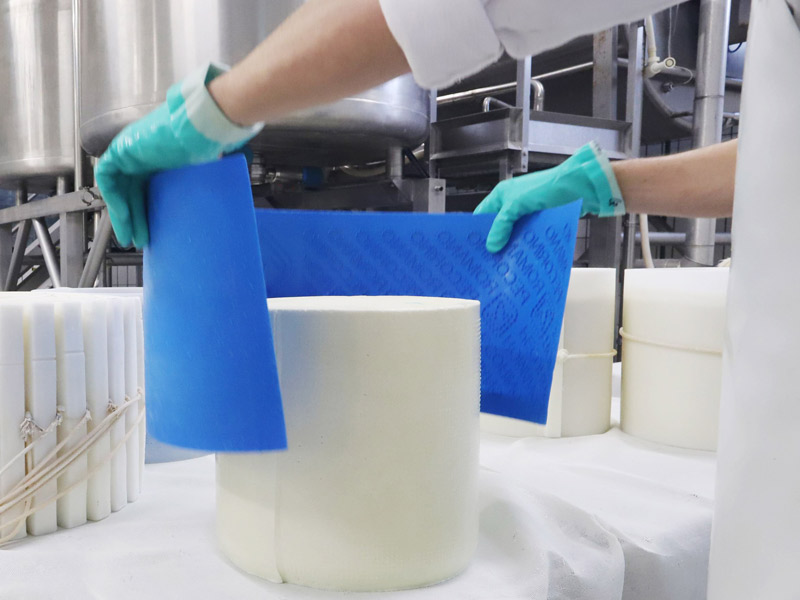
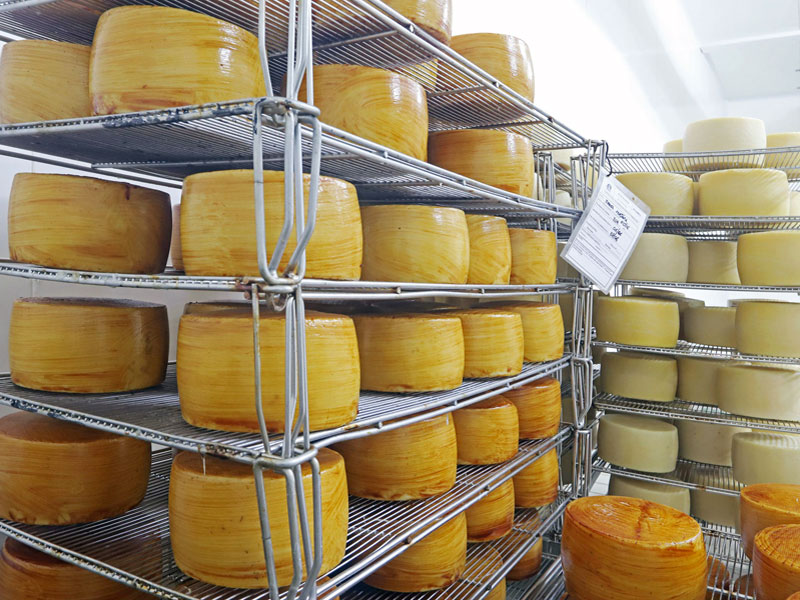
The final stage of cheese production is aging, which takes place in refrigerated and controlled environments. The timing of this phase strictly follows the ancient dairy tradition passed down through generations. This process helps preserve the characteristic flavors and aromas while ensuring the certified healthiness of the product.
Thanks to state-of-the-art machinery and an efficient distribution network, the cooperative is able to quickly package its products and carry out widespread deliveries both in Italy and abroad. The cheese wheels can be sold whole or portioned and vacuum-sealed, ensuring full compliance with quality and hygiene standards.
